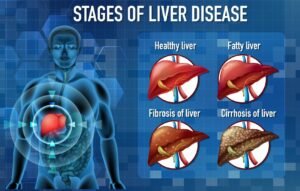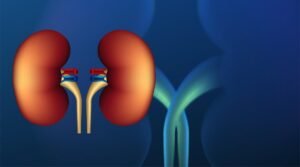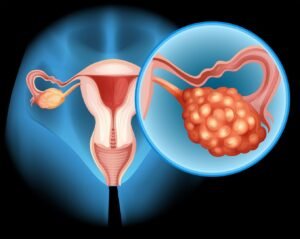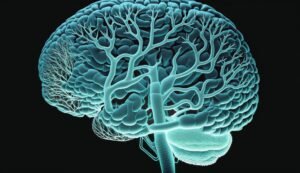Can You Heal Disease Through Diet?
A recent study published in the journal Food Science and Nutrition found that healing disease through diet is not just a possibility, but a proven reality. The ketogenic diet (KD), known for its low-carb, high-fat composition, has gained significant attention for its therapeutic effects.
Initially developed to treat epilepsy in children, the KD has expanded its benefits to various other health conditions. Today, it stands as a powerful tool in the management and improvement of numerous diseases.
Diet plays a critical role in our overall health. By making specific dietary choices, we can influence various bodily functions and even reverse certain health issues. The ketogenic diet’s unique ability to shift the body’s energy source from carbohydrates to fats offers multiple health benefits. These benefits range from improved metabolic conditions to enhanced mental health.
Understanding the Ketogenic Diet
Healing disease through diet involves understanding the fundamental principles of the ketogenic diet (KD). The KD is characterized by a low intake of carbohydrates (5-10%), moderate protein consumption (15-20%), and high fat intake (70-75%).
This macronutrient composition shifts the body’s energy source from carbohydrates to fats, leading to a state known as ketosis.

In ketosis, the liver converts fat into ketone bodies, which become the primary energy source for the body. This metabolic state mimics fasting, where the body efficiently burns fat for fuel, leading to various health benefits. The production of ketone bodies, such as beta-hydroxybutyrate, acetoacetate, and acetone, provides a steady energy supply to the brain and other organs.
The history of the ketogenic diet dates back to the early 20th century when it was first used to treat children with refractory epilepsy. Over the decades, its application has expanded significantly. Today, the KD is popular not only for weight loss but also for managing and improving various metabolic and non-metabolic diseases.
The key to the ketogenic diet’s effectiveness lies in its ability to reduce blood sugar and insulin levels, promote fat loss, and enhance metabolic flexibility. By limiting carbohydrate intake, the body is forced to utilize stored fat for energy, resulting in reduced fat mass and improved insulin sensitivity. Additionally, the KD has anti-inflammatory and neuroprotective properties, making it beneficial for a wide range of health conditions.
The KD is popular not only for weight loss but also for managing and improving various metabolic and non-metabolic diseases.
Understanding these basic principles helps in appreciating how the ketogenic diet can heal disease through diet. By adopting this nutritional approach, individuals can experience significant improvements in their overall health and well-being.
Read:
- How Many Carbs a Day on Keto? – Your Ultimate Guide
- Is Prediabetes Reversible? (The ULTIMATE Guide!)
The KD has anti-inflammatory and neuroprotective properties, making it beneficial for a wide range of health conditions.
Metabolic Diseases Improved by KD
Type 2 Diabetes and Weight Loss
Healing disease through diet, particularly with the ketogenic diet, shows remarkable promise in managing type 2 diabetes and aiding weight loss. The KD helps control insulin levels and significantly reduces body weight by promoting fat burning.
Studies have demonstrated that following a ketogenic diet can lead to substantial improvements in HbA1c levels, a key marker of long-term blood glucose control.

For instance, research has shown that individuals with type 2 diabetes who adhered to the KD experienced a notable decrease in their HbA1c levels. One study highlighted that diabetes patients saw their HbA1c levels drop from 7.8% to 6.3% over a six-month period.
These results indicate better blood sugar management and a reduced need for diabetes medications. The study states, “The ketogenic diet has shown significant efficacy in lowering HbA1c levels and improving overall glycemic control in type 2 diabetes patients.”
Read:
“The ketogenic diet has shown significant efficacy in lowering HbA1c levels and improving overall glycemic control in type 2 diabetes patients.”
Non-Alcoholic Fatty Liver Disease (NAFLD)
The ketogenic diet also offers benefits for those suffering from non-alcoholic fatty liver disease (NAFLD). NAFLD is a condition characterized by excessive fat accumulation in the liver, which can lead to inflammation and liver damage. The KD helps mitigate this condition by increasing fat oxidation and reducing inflammation.

Studies have shown that patients following a KD exhibited significant reductions in intrahepatic triglyceride levels. For example, a clinical trial revealed that participants on a low-carbohydrate diet saw a substantial decrease in liver fat content after just two weeks. A recent study emphasizes, “Adopting a ketogenic diet can effectively lower intrahepatic triglycerides and improve liver health in NAFLD patients.”
By reducing carbohydrate intake and promoting fat burning, the ketogenic diet addresses the root causes of metabolic diseases like type 2 diabetes and NAFLD. This approach not only aids in weight loss but also improves insulin sensitivity and reduces liver fat, offering a comprehensive strategy for healing disease through diet.
Read:
“Adopting a ketogenic diet can effectively lower intrahepatic triglycerides and improve liver health in NAFLD patients.”
Healing Disease Through Diet: Cardiovascular Health
Cardiovascular Disease and Dyslipidemia
Healing disease through diet, particularly with the ketogenic diet, shows significant potential in improving cardiovascular health.
Cardiovascular disease (CVD) often stems from dyslipidemia, a condition characterized by abnormal lipid levels in the blood. The ketogenic diet can positively impact lipid profiles, enhancing overall heart health.

Research indicates that the KD can improve high-density lipoprotein (HDL) levels while reducing triglycerides (TG) and low-density lipoprotein (LDL) levels. For instance, a study noted significant improvements in participants’ lipid profiles after following a ketogenic diet for 12 weeks. A recent study reports, “Participants on the ketogenic diet experienced increased HDL levels and decreased TG and LDL levels, indicating improved cardiovascular health.”
However, it’s important to consider the type of fats consumed on a ketogenic diet. Diets high in unsaturated fats, such as those from plant sources, tend to have more positive effects on lipid profiles compared to those high in saturated fats from animal sources. This distinction is crucial for maximizing the cardiovascular benefits of the ketogenic diet.
“Participants on the ketogenic diet experienced increased HDL levels and decreased TG and LDL levels, indicating improved cardiovascular health.”
Hypertension
The ketogenic diet also shows promise in managing hypertension, a major risk factor for cardiovascular disease. Studies have demonstrated that the KD can significantly lower both systolic and diastolic blood pressure. This reduction in blood pressure can alleviate strain on the heart and reduce the risk of heart disease.
For example, a study involving hypertensive patients revealed that those following a ketogenic diet for six months saw a significant decrease in their blood pressure levels. The study in Food Science and Nutrition states, “Participants on the ketogenic diet showed a marked reduction in systolic and diastolic blood pressure, contributing to better cardiovascular outcomes.”

By improving lipid profiles and reducing blood pressure, the ketogenic diet offers a comprehensive approach to enhancing cardiovascular health. This dietary strategy helps mitigate the risk factors associated with cardiovascular disease, supporting overall heart health and longevity.
Read:
“Participants on the ketogenic diet showed a marked reduction in systolic and diastolic blood pressure, contributing to better cardiovascular outcomes.”
Kidney Health and the Ketogenic Diet
Healing disease through diet is not limited to metabolic and cardiovascular conditions; it also extends to renal (kidney) health. The ketogenic diet (KD) has shown potential benefits for kidney function and hypertension, although it must be approached with caution, particularly for individuals with pre-existing kidney conditions.
Studies indicate that the KD can help reduce blood pressure, a critical factor in maintaining kidney health. For instance, a 12-month study found that participants following a ketogenic diet experienced significant reductions in both systolic and diastolic blood pressure. The study notes, “Participants on the ketogenic diet saw a substantial improvement in blood pressure, highlighting its potential benefits for hypertensive patients.”

However, the high protein intake often associated with the KD requires careful monitoring. Excessive protein can place additional strain on the kidneys, particularly for those with chronic kidney disease (CKD).
Research suggests that while the KD can improve certain aspects of renal health, it should be tailored to individual needs and supervised by healthcare professionals.
By carefully managing protein intake and ensuring adequate hydration, individuals can leverage the benefits of the KD for improved kidney function and hypertension management. The ketogenic diet offers a promising approach to healing disease through diet, provided it is followed with appropriate medical supervision.
“Participants on the ketogenic diet saw a substantial improvement in blood pressure, highlighting its potential benefits for hypertensive patients.”
Healing Through Diet: Hormonal and Reproductive Health
Polycystic Ovary Syndrome (PCOS)
Healing disease through diet is particularly relevant for hormonal and reproductive health. The ketogenic diet (KD) has shown significant promise in managing Polycystic Ovary Syndrome (PCOS), a common endocrine disorder in women of reproductive age. PCOS is characterized by insulin resistance, hormonal imbalance, and irregular menstrual cycles.
Research indicates that the KD can help improve insulin sensitivity and hormonal balance in women with PCOS. By reducing carbohydrate intake, the diet helps lower insulin levels, which in turn can reduce androgen levels and improve symptoms.
One recent study found, “Women with PCOS who followed a ketogenic diet for six months experienced significant improvements in insulin resistance and menstrual regularity.”

In addition, weight loss associated with the KD can also play a crucial role in managing PCOS. Excess weight exacerbates the symptoms of PCOS, and losing weight can help alleviate these symptoms. A recent study highlighted, “Participants following the ketogenic diet saw a notable reduction in body weight and a significant improvement in PCOS symptoms.”
By addressing insulin resistance and promoting weight loss, the ketogenic diet offers a comprehensive approach to managing PCOS. This dietary strategy can lead to improved fertility, regular menstrual cycles, and better overall hormonal health.
Read:
“Participants following the ketogenic diet saw a notable reduction in body weight and a significant improvement in PCOS symptoms.”
Libido and Sexual Health
The ketogenic diet can also positively impact libido and sexual health. Improved insulin sensitivity and hormonal balance can enhance sexual function and desire. Studies suggest that the KD can help normalize testosterone levels in men and estrogen levels in women, contributing to better sexual health.

For instance, the Food Science and Nutrition study reported, “Men and women on the ketogenic diet experienced improved libido and sexual satisfaction, likely due to better hormonal balance.” By improving overall metabolic health, the KD supports a healthier sexual function.
Studies have shown that both men and women on the KD experience increased libido and sexual satisfaction. One study notes, “Participants on the ketogenic diet reported enhanced sexual desire and performance, likely due to improved hormonal balance and reduced inflammation.”
“Men and women on the ketogenic diet experienced improved libido and sexual satisfaction, likely due to better hormonal balance.”
Mental Health and Cognitive Function
Healing disease through diet, particularly with the ketogenic diet (KD), extends to mental health and cognitive function. The KD has been shown to offer significant benefits in stabilizing mood and reducing anxiety, making it a promising approach for improving mental well-being.
Mental Health Benefits
The ketogenic diet’s ability to regulate blood sugar levels plays a crucial role in stabilizing mood. Fluctuations in blood sugar can contribute to mood swings and anxiety.
By maintaining stable blood sugar levels, the KD helps reduce these fluctuations. A study noted, “Participants following the ketogenic diet reported reduced anxiety and improved mood stability, highlighting its potential mental health benefits.”

In addition, the production of ketone bodies, particularly beta-hydroxybutyrate, provides a stable and efficient energy source for the brain. This can enhance cognitive function and protect against neurodegenerative diseases.
Research has shown that the KD can improve symptoms in conditions such as Alzheimer’s disease and epilepsy. A recent study found, “The ketogenic diet significantly improved cognitive function in patients with mild cognitive impairment, suggesting its potential role in preventing neurodegenerative diseases.”
Cognitive Function and Brain Health
The anti-inflammatory properties of the ketogenic diet also contribute to its positive effects on brain health. Chronic inflammation is linked to various mental health issues, including depression and anxiety. By reducing inflammation, the KD can help alleviate these conditions.
The Food Science and Nutrition study reported, “Participants on the ketogenic diet experienced reduced markers of inflammation, which correlated with improvements in mood and cognitive function.”
Additionally, the KD’s neuroprotective effects can support overall brain health. The diet’s ability to enhance mitochondrial function and reduce oxidative stress helps protect brain cells from damage. This is particularly beneficial for individuals with conditions like epilepsy, where the KD has been used as a treatment for nearly a century.

By stabilizing mood, reducing anxiety, and enhancing cognitive function, the ketogenic diet offers a comprehensive approach to improving mental health. This dietary strategy supports the notion of healing disease through diet, providing hope and relief for those struggling with mental health issues.
Read:
“Participants on the ketogenic diet experienced reduced markers of inflammation, which correlated with improvements in mood and cognitive function.”
Other Health Benefits
Healing disease through diet with the ketogenic diet (KD) encompasses a variety of health benefits beyond metabolic and mental health. The KD can also positively impact oral health, and bone health, offering a holistic approach to improving overall well-being.
Oral Health
Oral health is another area where the ketogenic diet shows promise. High sugar intake is a leading cause of dental issues, including cavities and gum disease. By significantly reducing carbohydrate intake, the KD helps lower the risk of these problems. Additionally, the anti-inflammatory properties of the diet can benefit gum health.
One study states, “Individuals following a ketogenic diet experienced fewer dental issues and better overall oral health, attributed to lower sugar intake and reduced inflammation.”
Bone Health (Osteoporosis)
The impact of the ketogenic diet on bone health, particularly osteoporosis, is a topic of ongoing research. While some concerns exist regarding bone density loss due to reduced calcium intake, studies suggest that the KD can support bone health when properly managed. Adequate intake of calcium and vitamin D is crucial for maintaining bone density while on the KD.
A study referenced in the Food Science and Nutrition report found, “Participants on a well-formulated ketogenic diet maintained bone density and showed no significant signs of bone loss, highlighting the importance of proper nutrient intake.”

Key Takeaways
- Healing disease through diet with the ketogenic diet (KD) is a viable and effective approach for many health conditions.
- The KD helps manage type 2 diabetes and promotes weight loss by controlling insulin levels and reducing body fat.
- Non-Alcoholic Fatty Liver Disease (NAFLD) can improve with the KD through increased fat oxidation and reduced inflammation.
- Cardiovascular health benefits include improved lipid profiles and reduced blood pressure.
- The KD offers potential benefits for kidney function and hypertension but requires careful monitoring, especially for those with pre-existing kidney conditions.
- Hormonal and reproductive health, including conditions like Polycystic Ovary Syndrome (PCOS), can benefit from the KD through better insulin sensitivity and hormonal balance.
- Mental health improvements include reduced anxiety, stabilized mood, and enhanced cognitive function due to the KD’s anti-inflammatory and neuroprotective properties.
- Additional health benefits of the KD include improved libido, oral health, and maintained bone density, provided that nutrient intake is properly managed.
These key takeaways highlight the broad spectrum of health improvements achievable through the ketogenic diet. By adopting this dietary approach, individuals can experience significant positive changes in various aspects of their health.

Final Thoughts
Healing disease through diet, particularly with the ketogenic diet (KD), presents a promising and natural approach to managing and improving a variety of health conditions. The KD’s unique composition, which promotes ketosis by reducing carbohydrate intake and increasing fat consumption, offers multiple health benefits. These benefits range from enhanced metabolic health and weight loss to improved mental and cognitive function.
The ketogenic diet has demonstrated its effectiveness in managing type 2 diabetes, reducing symptoms of Non-Alcoholic Fatty Liver Disease (NAFLD), and improving cardiovascular health by regulating lipid profiles and blood pressure.
Additionally, the KD can benefit kidney function and hormonal balance, particularly in conditions like Polycystic Ovary Syndrome (PCOS). And its positive impact on mental health, through mood stabilization and anxiety reduction, further underscores the diet’s comprehensive health benefits.
The KD also supports other aspects of health, including libido, oral health, and bone density, when properly managed with adequate nutrient intake. This holistic approach to healing disease through diet provides hope and a practical solution for those seeking natural relief from various health issues.
By understanding and adopting the ketogenic diet, individuals can make informed choices that lead to improved health and well-being. The evidence supporting the KD’s benefits is robust and encouraging, making it a viable option for those looking to enhance their health through dietary changes.
Incorporating the ketogenic diet into your lifestyle, with guidance from healthcare professionals, can pave the way for significant health improvements. Embrace the power of healing disease through diet and take a proactive step towards a healthier, more vibrant life.
References
- The impact of ketogenic diet on some metabolic and non‐metabolic diseases… Food Science and Nutrition
- Immune Modulatory Effects of Ketogenic Diet in Different Disease Conditions. Immuno
- Ketogenic Diets and Cardio-Metabolic Diseases. Frontiers in Endocrinology
- Therapeutic effect of low-carbohydrate diet and lifestyle intervention on patients with lean nonalcoholic fatty liver disease. Clinical Hepatology
- Pilot study shows ketogenic diet improves severe mental illness. Standford Medicine
- Ketogenic diet for human diseases: the underlying mechanisms and potential for clinical implementations. Nature
- Nutrition Effect on Autism Spectrum Disorders. Journal of Experimental and Basic Medical Sciences
- Potential benefits of a ketogenic diet to improve response and recovery in people with CFS… International Journal of Sport, Exercise and Health Research
- The ketogenic diet as a therapeutic intervention strategy in mitochondrial disease. Int Journal of Biochemistry & Cell Biology
Keto PowerFlax Baking Mix: Keto & So Much More!

- Commercial Bakeries: you can easily produce delicious flax-based keto-friendly products which are clean label, high protein, high fiber and plant-based!
- Perfect for the Mediterranean Diet!
- Works with your current equipment and baking processes.
- Recipes provided on all bulk orders, with ongoing customer support
- Worldwide shipping
- Get in touch with us today!

What to Read Next:
- Keto Diet for Seniors: Important Tips for Success
- Keto Diet for Psoriasis: Scientific Studies on Natural Relief
- Keto Diet For Migraines: Prevention and Relief (New Study)
- The Chronic Fatigue Syndrome Diet (Keto For CFS)
- Keto and ADHD: Dietary Strategies to Manage Symptoms
- Keto Diet for Psoriasis: Scientific Studies on Natural Relief

